- Home
- Matt Hilton
Dead Men's Dust Page 22
Dead Men's Dust Read online
Page 22
33
THE LAST TIME I WAS ON A MOTOR LAUNCH IT WAS AT NIGHT and I was being deposited on a deserted beach in the Indian Ocean. I was part of an eight-man team sent to extradite suspected terrorists who’d been holed up there since a predawn attack on a village full of women and children.
On that occasion I didn’t take too much notice of my surroundings. It was an in and out, a smash and grab mission that left no time for sightseeing.
Now, standing on the prow of the launch, I took the time to feel the spray of the ocean on my face, to smell the tang of brine in my nostrils and feel the wind in my hair. The Bailey motorboat was riding high on the ocean, lifting majestically with each swell, dipping down with each trough. I stood with my legs braced against the motion, but neglected to reach for the handrail.
“If you close your eyes and hold out your hands it feels like you’re flying,” Rink said from behind me.
I snickered at the image. “Start singing like Celine Dion and I’ll throw you overboard,” I promised him.
Rink grunted, moving up next to me. He leaned forward and rested his meaty forearms on the guardrail. “What makes you think they’ve headed south?”
“Just a feeling,” I said.
“A feeling? What? Like a sixth sense or something?” Rink wasn’t kidding. Like most soldiers, he knows there’s a force out there that isn’t tangible in the proper sense. Many a soldier’s life has been saved by an enhanced sense that borders on the supernatural. Something that warned him about the concealed tripwire or sniper lying in ambush. Some argue that it’s simply a product of supercharged adrenaline and a keenly trained eye, but I believe there’s more to it than that. It’s more than the creeping-flesh sensation that unseen eyes are watching you. But the feeling I was referring to had nothing to do with that or any other power. It had simply to do with deduction.
“No, a feeling that if I was in their shoes I’d’ve headed south, too.”
“If they survived.”
“There’s no doubt about it, Rink. Whoever this guy is that John’s with, he knows his stuff. Only someone with training goes onto a yacht full of armed men and ends up blowing it and everyone aboard to shit.”
“Unless he’s got the other important ingredients: he’s as crazy as a bag of weasels, has more balls than sense, and he’s the luckiest goddamn son of a bitch on the planet.” Rink raised his shaggy brows, inviting disagreement.
I shrugged, moving to join him at the guardrail. Below us, the bow wave split like blistering phosphorus against the deep aqua of the ocean. “Maybe he has both,” I said. “The training and the other ingredients. He had a get-out plan. You can bet your life on it.”
“So it stands to reason,” Rink acquiesced, “that he heads out to sea to avoid the cordon of blue lights converging on the harbor.”
“Coast guard has their base to the north. It’s what I’d’ve done,” I told him, and Rink nodded in agreement.
“So who is this guy? You think it really is this Harvestman the media’s screaming about?”
“Has to be,” I said. “It’d explain why John’s fingerprints turned up in connection with the killings of that couple at the motel. Somehow, John’s got himself into something way beyond his ability to get out of. Only thing I can’t fathom yet is what part he’s playing in all this. I can’t believe he’d be a willing participant to murder.”
Rink said, “Maybe you don’t know John the way you think you do.”
“You keep saying that. Maybe you’re right, Rink, but until I’m proved wrong, I prefer to give him the benefit of the doubt.”
“Fair enough,” Rink said. “But what if he has turned, Hunter? What if your brother has acquired a taste for blood? What if he’s a goddamn willing participant?”
I didn’t answer for a moment, my gaze fixed on the horizon. Like the point where the sky and ocean met, my reason blurred into a haze of nothingness. Finally, I turned to Rink and saw that he was studying me with an intensity common to him. I blinked slowly, breaking the connection. “If that’s the case, it puts a whole new slant on my purpose for finding him.”
Rink nodded sagely, lifted a hand, and placed it on my shoulder. “Let’s hope it doesn’t have to come to that, huh?”
A shout from behind us broke my melancholy and I turned to squint back at the skipper who was at the wheel of the boat.
He was pointing with excitement toward the shore. A little more than five hundred yards away I saw what he indicated. To me, it was nothing more than one more boat tied to a short pier.
Together, Rink and I made our way back to the skipper’s cabin. He was grinning. “The dinghy over there,” he said with an exaggerated nod of his head. “It’s from the Morning Star.”
“The Morning Star being one of the yachts moored in the harbor?” I asked.
The skipper snapped his fingers, then pointed a gnarled digit at me. “Got it in one.”
“How can you be sure?” Rink asked.
The skipper’s eyebrows did a little jig. “I’ve been around them boats all my working life. I know what skiffs belong to what and to whom. Not only that, but if you look at the painting on the outboard, you can see that it’s a five-pointed star coming up over the sea, not the sun, as you’d expect.”
I squinted across the waves. I could barely see the outboard motor, never mind the motif on it. I looked back at the skipper, and he grinned again.
“I’ll trust your better eyesight,” I told him. “But couldn’t there be a rational reason why a dinghy from the Morning Star would turn up here?”
“None that I can guess at,” the skipper said.
“No, I suppose not.” I looked back at the dinghy. “Can you bring your boat in close to the same berth?”
“Tide’s a bit low for my girl. I’ll get in as close as I can, but you might have to wade to shore.”
“Okay,” I said, turning to Rink. “You ready for this?”
Rink patted the bulge under his armpit. “Ready, willing, and able.”
Returning my attention to the skipper, I indicated the beach house a short way up from the jetty. “Do you know whose place that is?”
He shook his head. “I’m good with boats, haven’t a clue about houses.”
I shrugged. “Okay. Can you get the emergency services on your radio?”
“Yeah. Of course.”
“Yeah,” I agreed. “Once you’ve put us ashore, shout for help. Tell the cops to get to this location as fast as they can.”
The skipper was no naive old fool; he knew we’d chartered his boat for the strict purpose of hunting someone fleeing the scene of devastation up at Marina del Rey. What he didn’t know was exactly who we were chasing. Or why.
“You expecting trouble, son?” he asked.
“Maybe of the worst kind,” I told him.
“So why don’t you wait till the cops get here before you go ashore?” he asked. For the first time, there was a hint of something less than his ordinary ebullience.
“We could have some kind of hostage crisis. I can’t wait for the cops to get here before any innocents are harmed.” The first was for the old man; my next was directed at Rink. “If the men we’re after have already been and gone, I’ve got a horrible feeling that there’ll be some cleaning up to be done. Best we leave that to the authorities this time.”
Rink nodded in understanding, while it was the skipper’s turn to squint at the rapidly approaching shoreline. He didn’t ask for an explanation and I offered him none. He guided the prow of the Bailey toward the jetty, and as he’d predicted we were more than fifteen feet short of the boardwalk when we felt the judder of sand beneath us. The skipper threw the boat into reverse, edging back until we were in clear water. From the front of the boat, I gave him a thumbs-up and the skipper nodded at me.
“You want me to wait for you?” he called from the cabin.
I shook my head over the sound of the idling engine. Whatever the outcome, I didn’t believe I’d be boarding a boat again anyt
ime soon. “Maybe it’s best you pull back from the shoreline. Could be bullets flying around before long.”
“I appreciate the warning, son, but you don’t have to worry about me. Completed two tours in Vietnam, so the prospect of flying bullets means nothing to me.”
“Fair enough, but I don’t want your death on my conscience.”
The skipper grunted, but then he winked, dipped the peak of his cap. “It’s your mission, son. Keep safe. An’ tell your big buddy to do likewise.”
“Will do,” I said, glancing Rink’s way. He was standing at the prow, scanning the beach for movement. His shoulders twitched, adrenaline searching for release. As I walked toward him, I placed my hand under my armpit and felt the reassuring bulge of the latest SIG Sauer supplied only an hour earlier by Cheryl Barker. It was the older Swiss P230 model, with no manual safety button, so the weapon could be brought into action very rapidly. Brought back memories from my Point Shooting days.
We went over the side of the boat together, splashing waist deep in the foam. Sand immediately invaded my shoes, and my trousers clung to my skin. I forgot my discomfort as we pushed toward the dinghy.
“Blood,” Rink observed even as we approached. It was smeared over the edge nearest the dock as though something limp and lifeless had been dragged onto the walkway. I pressed up to the boat. More frothy blood was pooled in the bottom. Rink and I shared a look. All this blood wasn’t a good sign that we’d find John alive, but it meant my hunch was correct after all. There couldn’t possibly be a more likely explanation for this boat to be here than that it had carried escapees from the carnage at Marina del Rey.
Pulling my SIG out of its holster, I chambered a round. I heard a similar kachunk! as Rink followed suit with his Mossberg. We followed the dock on to the beach. Rink fanned off to my left. Before us was a wooden house with a well-tended yard. A dust-streaked Dodge was parked alongside the house. There was no further room in the lot for another vehicle so I guessed that John—if he was still alive—was inside the house. Not good in one sense, it added to my apprehension of a possible hostage situation escalating beyond my power to control.
Rink was twenty yards away now, moving toward the house. I sucked in a deep breath and moved onto a gravel path that led to the door of the house.
I saw spatters of blood on the doorstep. Hearing the sputter and roar of an engine, I saw that the skipper was heeding my warning. I wondered if he’d already called for backup, and then searched the sky for a helicopter.
Nothing.
Just a single speedboat hurtling along about a quarter of a mile to the north. Even from here, I could tell it was a private boat, so I gave it no further thought. Even if the skipper had immediately called the authorities, they were still many minutes away. Which meant I had no time to waste: if John was inside, especially accompanied by the Harvestman, I had to take decisive action before any innocents were injured.
Given the opportunity, I’d have scoped the place and gained a better understanding of what it was we faced. Rink and I would’ve devised a plan of approach. But like always, Murphy’s Law took precedence here. I could only hope that the chaos rule held us in its favor as it had done innumerable times in the past.
With this in mind, I’d no recourse other than charge the screen door, lift a foot, and crash through, hurtling into whatever hell storm would follow.
Which is exactly what I did.
34
SNAPSHOT.
On first perusal, it was a nice home.
Reminded me of my grandparents’ bungalow.
On deeper reflection, the memory of their home told me everything I was afraid of.
There was a cancer at this house’s core.
To maximize the sunshine, all these beach houses had been built so that their fronts were to the ocean. Therefore, through the door I shattered was a vestibule leading directly to an open-plan living area on one side and a bedroom on the other. Toward the back of the house would be a kitchen and perhaps a utility area, but these were of no interest to me.
Kick-start the world.
I moved.
My entire attention was skewed to the left as I swung into the living area. I say living area; I could already see the corpse of some hulking dog lying alongside its ceiling-staring master. The man was indisputably dead judging by the mess of his throat and the cataract-glaze of his eyes. His mouth hung open in shock, and pink spume clung to his contorted lips. Another thing I took in during that nanosecond of horror; his left hand was missing, shorn off at the wrist. The Harvestman was living up to his name.
Apart from the corpses, the room was as ordinary as any home supported by a modest income. There was the obligatory TV, settee and chairs, trinket-type ornaments, and photographs in frames. The thing that stood out was the large piano that took up most of one side of the room. Then there were the three people standing around it.
Perhaps standing around it isn’t the most apt way to describe the scene.
One figure, an elderly woman, was being helped off the piano stool by the tug of a man’s arm around her throat. As she stood in an awkward spasm, her fingers clawed at the piano keys and a deep-throated note vied for dominance over an equally harsh one. The man pulling her backward stared at me over the woman’s shoulder, his lips split in a feral snarl.
My SIG came up. Ordinarily I’d have fired, but the man placed the muzzle of a gun to the side of the woman’s face and I stayed my hand. My gaze flicked to the nearer side of the piano. Immediately I saw my brother.
At the time, I can’t honestly say if I was pleased to see him. I think, deep down in my soul, I’d secretly hoped that John was dead, that the possibility that he’d become a monster had been removed.
John turned his face to mine, and shock struck his dull expression. Then a bit of hope flared. That look was all I needed to confirm that John wasn’t a consenting player in this game. Immediately my attention skipped back to the man holding the woman.
“Drop the gun,” I shouted.
The man’s snarl broadened ever wider and I saw ice behind his pale green eyes. Using the woman as a shield, he pressed the gun under her jaw.
“I think it’s you who’d better drop the gun,” he said.
My SIG didn’t waver. I took a step closer. Finger pressure increased on the trigger. Calmer, I said, “Drop the gun.”
In answer, he thumbed back the hammer on his own gun. “Think you can drop me before I kill this old bitch?”
“Yes.” I stared at him along the barrel of my gun.
He shook his head. “I don’t think you’re as confident as you’re making out. If you could do it, you would’ve done so by now.”
“You’ve got another five seconds to comply,” I told him.
The man laughed. His captor whimpered in terror. Her arthritic knees threatened to dump her on her backside, and only the dragging arm around her throat held her up. She was no lightweight, but the man didn’t seem to be struggling to control her. The arm looped around her throat bulged with lean strength.
“One,” I counted.
“Aw, cut the dramatics, will you,” he taunted. As he did, he shuffled sideways, putting himself in a corner of the room. It wasn’t an attempt to find an exit, but to ensure he couldn’t be triangulated. His back to the corner of the room, he took away any opportunity for Rink to get a bead on him. I glanced to my left and saw Rink standing outside the open window, his shotgun trained on the man. My friend gave a subtle shake of his head. No line of fire.
“You’re cornered,” I told the man. “Let the woman go and you’ll live. Harm her and we’ll shoot you like a mad dog.”
“No. What you are going to do is put down your weapons. I leave with the woman.” He glanced over at a briefcase I only now noticed on the lid of the piano. “And that.”
“No deal. You’re going to let the woman go first.”
“Uh-uh. Maybe I’ll just shoot her face off and take my chances, huh?”
He pressed the barrel
of his gun into her left eye socket, eliciting a shriek from the woman. Again my finger tightened but didn’t follow through.
Think of damp ashes, that was the color of John’s face as he turned to me. He supported his weight against the piano, body racked with pain. Weak and hurting. “He means it, Hunter. He’ll do it.”
My gaze jumped between him and the gunman. A smile flickered at the corner of the gunman’s mouth, a tensing of his eyes. Did he recognize my name? How could he, I told myself, it’s not as if I’m James Bond. To John I said, “Get over here behind me, John.”
The gunman grunted. “You two know each other?”
Neither of us answered, but the silence was palpable.
“Wait a minute. Hunter?” The man searched my face. Lines crinkled at the corners of his eyes as though something amusing had struck him. “Not Joe Hunter?”
Unbidden, my face pinched. My teeth ached as my jaw tightened. Some secret I turned out to be. Maybe I should have worked under a code name after all.
“Well for the love of all that’s holy! Who’d have thought they’d have put you on my trail?”
Again I didn’t answer, and the man turned his attention to John.
“Wait a minute…I see it now. The family resemblance. You’re so full of surprises, John. You didn’t tell me you were related to such a notorious assassin as Joe Hunter…” He squinted across at Rink, who remained statue solid at the open window. “And don’t tell me…not Jared Rington as well?”
John’s face puckered. It can’t ever have occurred to him before just who—or what—his big brother really was. He was aware that my work involved hunting terrorists, but I don’t think he appreciated what that actually entailed. To him, I was just a soldier killing other soldiers. Now he was probably wondering, Aren’t assassins the bad guys?
I don’t appreciate the term assassin, but I suppose, at the end of the day, it all comes down to your perspective. Rink and I were either saints or sinners. At that moment, I saw myself as the saint; the man with the gun shoved in an elderly woman’s eye socket assured me of that.

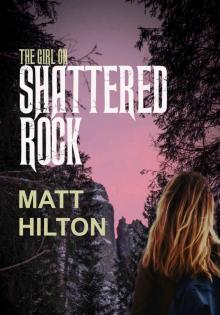 The Girl on Shattered Rock: A gripping suspense thriller
The Girl on Shattered Rock: A gripping suspense thriller Collision Course
Collision Course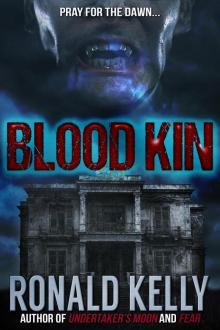 Blood Kin
Blood Kin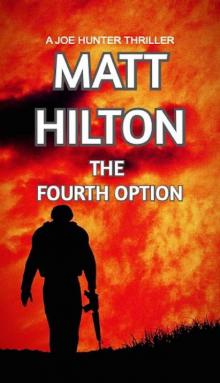 The Fourth Option
The Fourth Option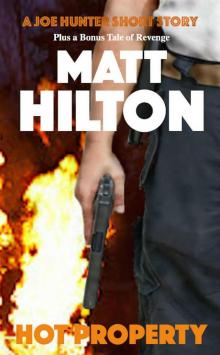 Hot Property: A Joe Hunter Short Story
Hot Property: A Joe Hunter Short Story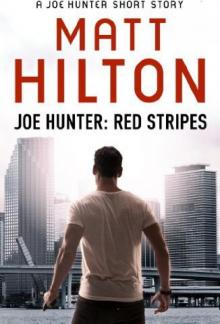 Red Stripes
Red Stripes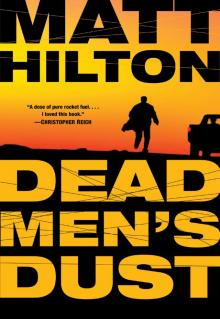 Dead Men's Dust
Dead Men's Dust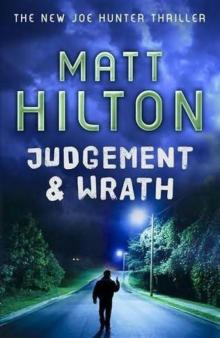 Judgement and Wrath
Judgement and Wrath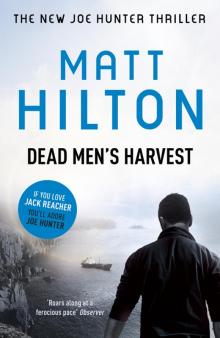 Dead Men's Harvest
Dead Men's Harvest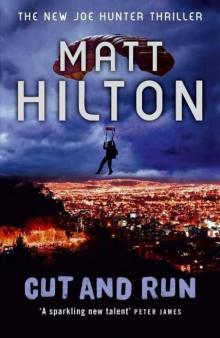 Cut and run jh-4
Cut and run jh-4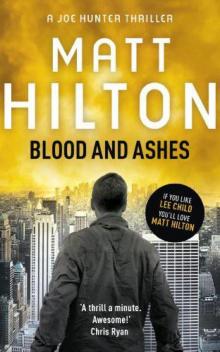 Blood and Ashes jh-5
Blood and Ashes jh-5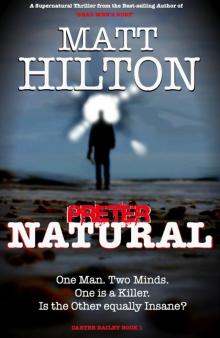 Preternatural: Carter Bailey Book 1
Preternatural: Carter Bailey Book 1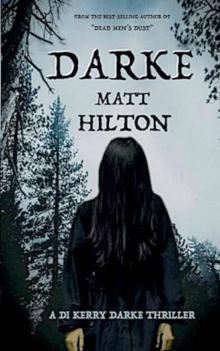 Darke
Darke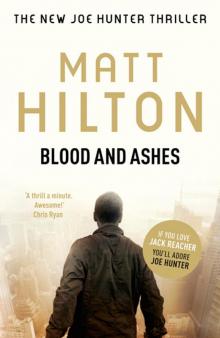 Blood and Ashes
Blood and Ashes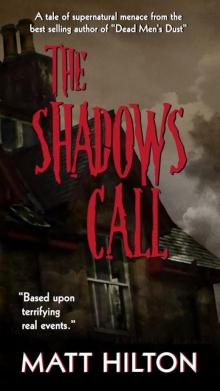 The Shadows Call
The Shadows Call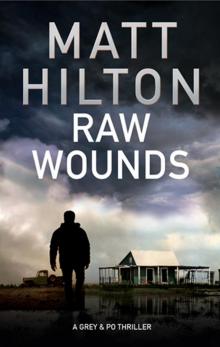 Raw Wounds
Raw Wounds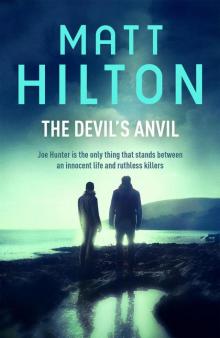 The Devil's Anvil
The Devil's Anvil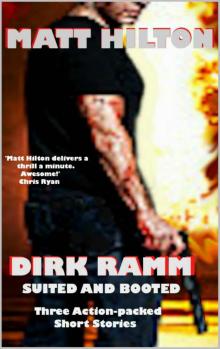 Dirk Ramm: Suited and Booted
Dirk Ramm: Suited and Booted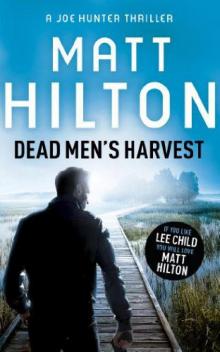 Dead Men's Harvest jh-6
Dead Men's Harvest jh-6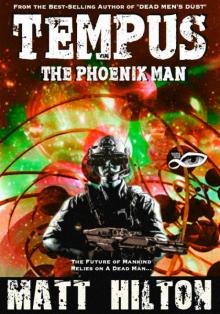 Tempus: The Phoenix Man
Tempus: The Phoenix Man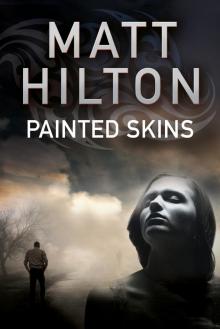 Painted Skins
Painted Skins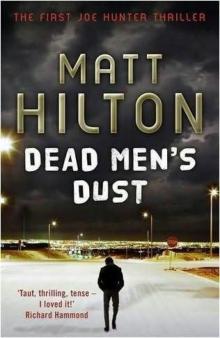 Dead Men's Dust jh-1
Dead Men's Dust jh-1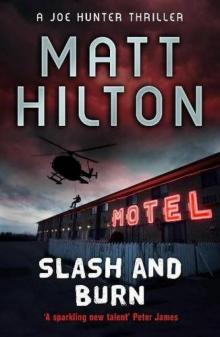 Slash and burn jh-3
Slash and burn jh-3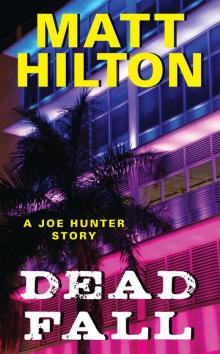 Dead Fall
Dead Fall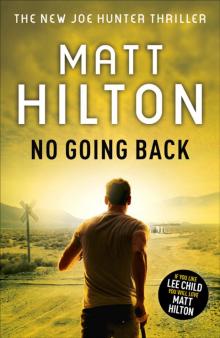 No Going Back - 07
No Going Back - 07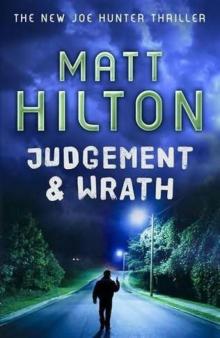 Judgement and Wrath jh-2
Judgement and Wrath jh-2